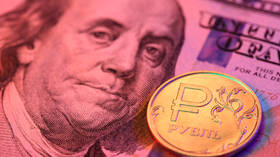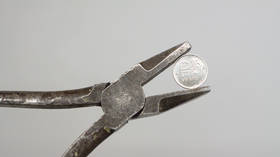Russia makes bond payment, now ‘the ball is in US’ court’ – finance minister

Russia has ordered payment on two US dollar bond coupons due on Wednesday, but it is up to Western states, mainly the US, to withdraw the funds from the country's frozen foreign currency accounts and pay bondholders, Russian Finance Minister Anton Siluanov says.
“The possibility or impossibility of fulfilling our obligations in foreign currency does not depend on us, we have the money, we made the payment, now the ball is in America’s court,” the official stated in an interview with RT Arabic. He added that Washington should clarify whether it is possible to make the payments from Russia’s foreign currency accounts.
Russia has to pay $117.2 million on two issues of its sovereign Eurobonds on March 16. The Finance Ministry announced on Monday that it had sent an order to transfer the payment to the international depository and clearing system Euroclear. The depository will then transfer the money to bondholders. The payment order is given in US dollars, but for bondholders to receive the money, it must be withdrawn from frozen Russian foreign currency accounts. But this could be tricky.
Nearly half of Russia’s reserves (around $300 billion) and foreign currency accounts of the Russian Central Bank (Bank of Russia) are frozen amid sanctions that followed the launch of Russia’s military operation in Ukraine last month.
The restrictions have not included formal bans on operations to service Russia’s external debt, but foreign banks may refuse to make payments on them fearing retaliatory US sanctions. Still, according to analysts, if the order in foreign currency is not executed, the sum due will be transferred to bondholders’ accounts in rubles at the exchange rate of the Russian Central Bank on the day of payment.
Despite sanctions making it difficult for Russia to fulfill its obligations, the country intends to do so, according to Siluanov, who insists Russia has all the necessary funds. As the official mentioned earlier, there are no real economic grounds for Russia to default on its debt.
Experts also say that given Russia’s ratio of GDP ($1.65 trillion) to external debt ($478.2 billion), which does not exceed 25%, the country is financially stable, which supports Siluanov’s earlier statement that the West is trying to drag Russia into an “artificial default.”
Russia also has special drawing rights (SDRs) in the International Monetary Fund, which are not subject to sanctions, and analysts say these could also be used to pay its national debt if other measures fail.
For more stories on economy & finance visit RT's business section













